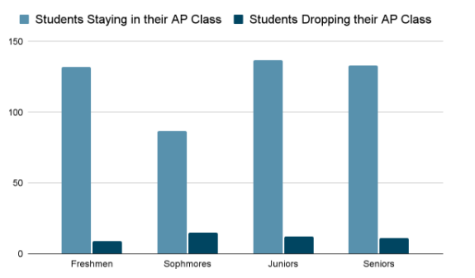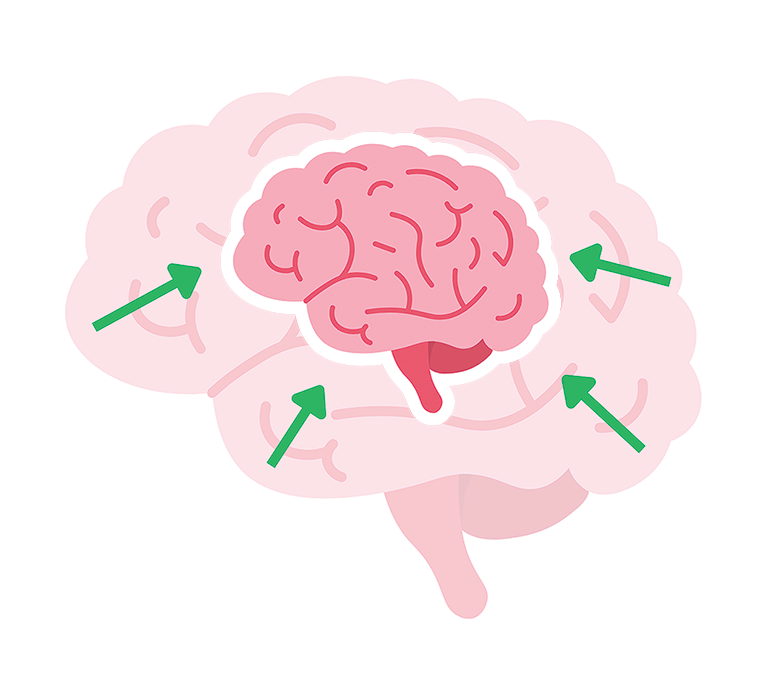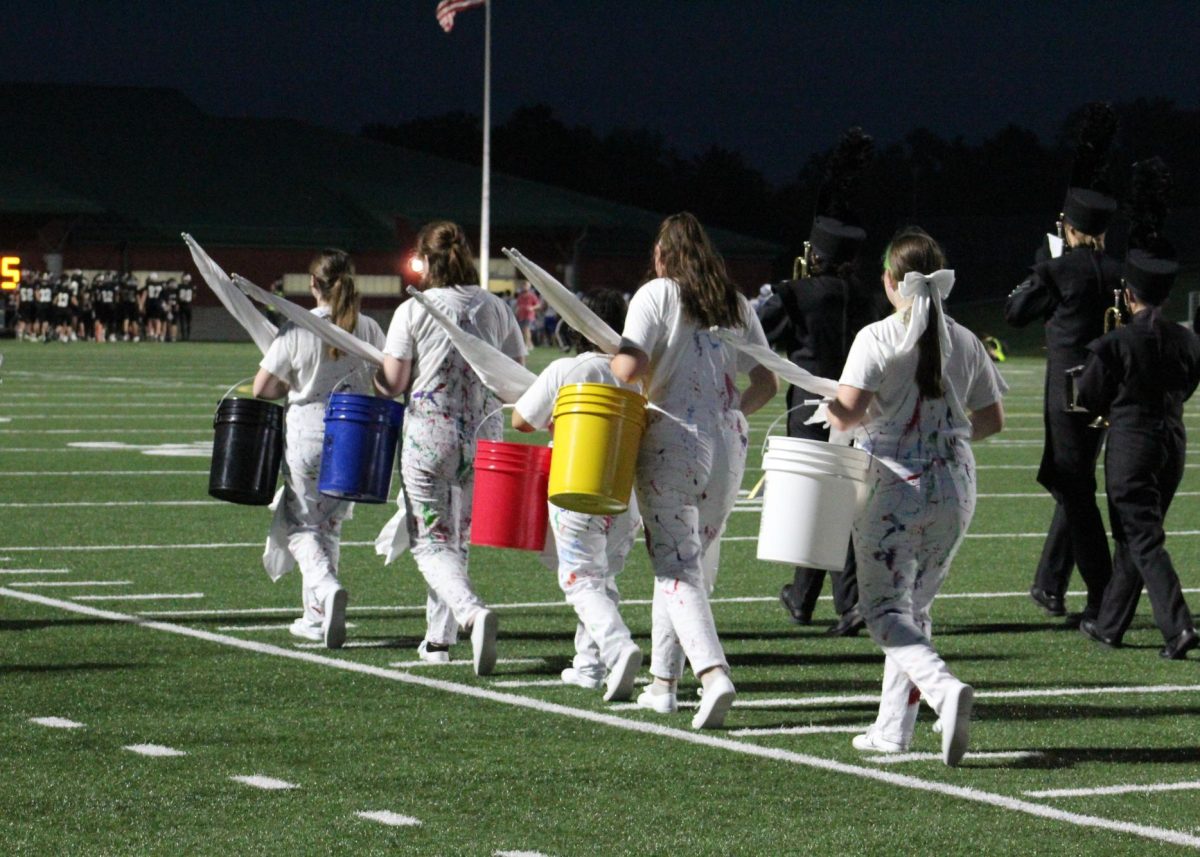In spite of rigorous AP course loads, LSE has low drop rates
October 3, 2022
As students’ academic journeys continue, academic pressure is an aspect that intensifies. As a result, students looking to raise their GPA, earn college credit or better prepare themselves for their future, commonly turn to Advanced Placement classes or AP classes. Although AP classes can be a great opportunity for students, many of them include challenging material and require a lot of time and dedication outside of school to maintain a decent grade.
LSE AP enrollment data indicates that a total of 536 students enrolled in AP courses at the beginning of the 2022 school year; additionally, many signed up for multiple courses, thus bringing the result to a total of 785 students who signed up for AP classes. As of Sept. 7, a total of 47 students had dropped an AP class they were in. While LSE’s drop rate is relatively low, typically they are notorious for their high dropout rates. Why is this?

The most clear, and likely the most common, reason for this lies in the sheer amount of academic pressure that comes along with taking an AP class. AP classes are commonly considered college classes, thus, students are typically presented with more assignments, homework, tests or information to memorize in a shorter period of time. However, unlike college, high school students can still have up to seven other classes to manage, while the typical college student only has five. An article by Jeff Collins in Globe News Wire gives some insight into the severity of school-related stress among high school students, stating that almost 45 percent of the over 35,000 students surveyed in 2018 said that they felt stressed “all the time.”
Similar to the experiences of other students nationally, Southeast junior Tori Sands dropped her AP Language and Composition class in order to help maintain her mental health.
“I think I could have [succeeded in the class] if I really tried, but I think it would have stressed me out too much,” Sands said.
In addition to the high reports of stress, excessive amounts of school work (a common theme in many AP classes), can result in students staying up late to complete assignments. The act of sacrificing time to rest causes a loss of sleep, especially when combined with work, sports or extracurriculars. An article by the Centers of Disease Control and Prevention (CDC) titled “Sleep in Middle and High School Students” discusses a 2015 study which found that 72.7% of high school students already lack sleep during the school week.
“I think for people who are more involved outside of school with stuff they just truly don’t have the time,” Sands said.
It’s not uncommon for students who are considering dropping an AP class to feel unsure of this decision at first, especially if they tend to compare themselves to other students around them. Due to the difficulty of many AP classes it is highly unlikely that there would be only a select few students struggling with the material.
“It wasn’t just me who dropped the class. A few other people in the class actually ended up dropping with me and we’re now all in the same [non-AP] class,” Sands said. “We definitely felt overwhelmed and very stressed out with it, but others I’ve talked to didn’t think it was that stressful and so I’ve heard mixed reactions.”
Overall, many students enroll in AP classes for their beneficial educational opportunities, however, some students see a need to prioritize their mental health and well being. The practice of balancing stress and workload ensures that some students will have more successful educational experiences — even if it means dropping a class.
For Sands, her balance included the conclusion of dropping an AP class that she may have enjoyed in order to feel comfortable in her academics.
“I really like English, it was just really that the class wasn’t right for me,” Sands said.
Ultimately, there are pros and cons to dropping an AP class, but it’s up to students to do what’s best for themselves.
“It was like a weight off my shoulders,” she said.










